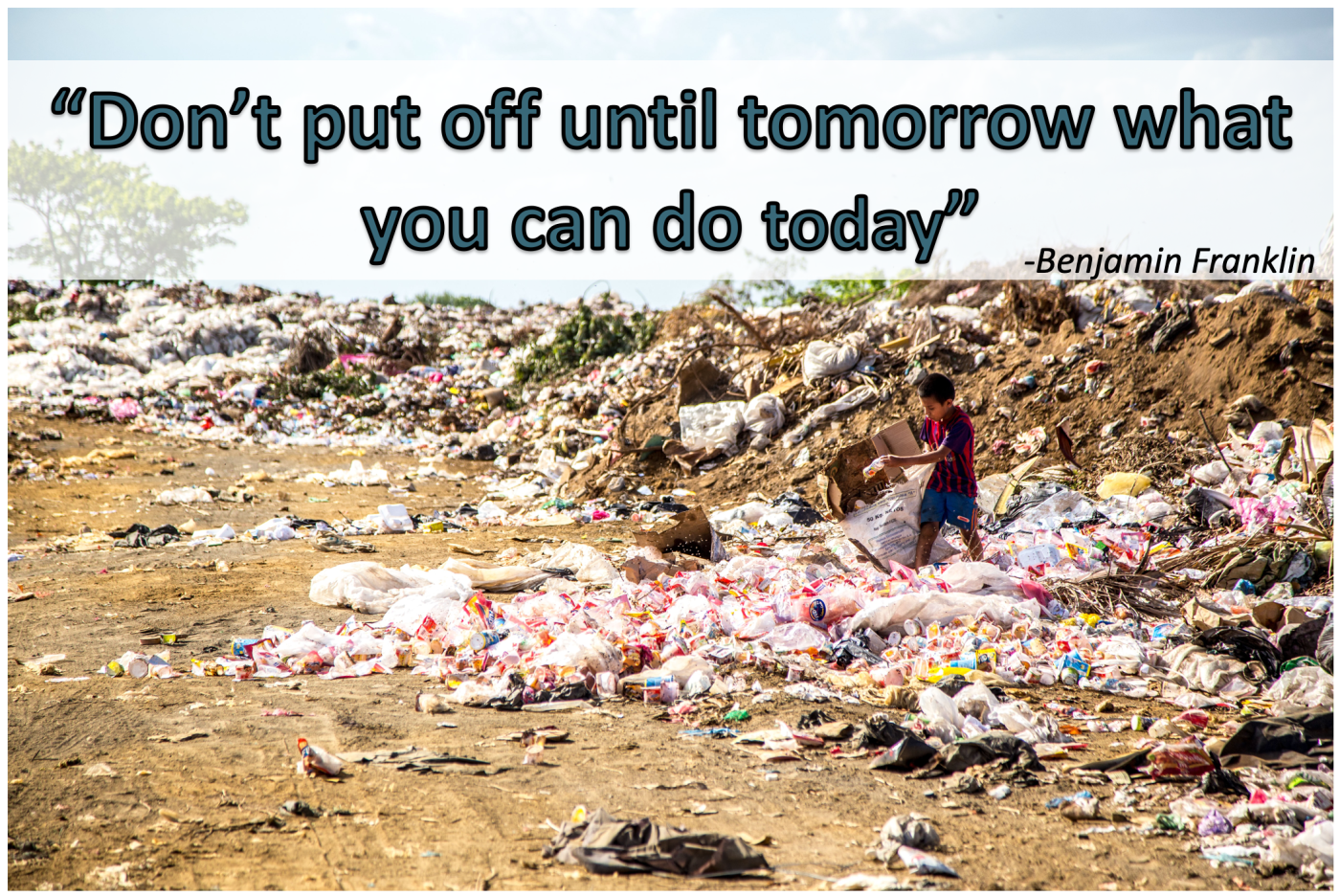We’ve all heard Benjamin Franklin’s famous words “don’t put off until tomorrow what you can do today”. For most things in life this is probably extremely good advice, we can all think of things that should be done now. However, are there certain parts of life that are better for tomorrow? Let’s start with the easy stuff of procrastination and tough choices, then dive into an economic discussion of 1st and 3rd world countries to see how decisions today can change tomorrow.
Clearly, we can probably all agree that it is best to not procrastinate on certain aspects of life like brushing your teeth today, giving the Heimlich, or fueling your vehicle when the empty light is on (of course the light is on likely because you procrastinated). Then there are those things in life that we don’t procrastinate on because they would have an extremely negative effect on other functions of life, such as paying bills before they are due or going to work. Sure, we may sleep past the buzzer here and there, but ultimately, we can’t say “I’m not coming in today, maybe tomorrow”.
But what about more difficult scenarios in life; determining the right time to buy a home, starting a weight loss goal, resisting TV or going to sleep when your goal is to read more, educating yourself about the next election and propositions before November…etc. These examples are just a few things most of us have probably pushed off until tomorrow. It doesn’t mean we are terrible people; it just means the priority for such isn’t quite there yet.
When we walk through life we are constantly being bombarded with choices. Every minute provides us with an opportunity to make a decision with endless possibilities. However, life only becomes better when we make the more responsible choice today. It doesn’t mean certain functions can’t wait until tomorrow, it just means we have to consciously decide when we are going to engage in the activity and stick to our plan.
We all must take personal responsibility with our decisions and our actions. If we can’t stick to our plan, then who’s plan are we really on? Society grows because of people making a choice to do something different, accomplish goals, and learning to understand others. If we are always waiting around for something to happen to us, instead of making things happen, then we aren’t being responsible citizens and helping our country develop.
Think about this, most first world nations have a good amount of natural resources, easy access to most any country via plane, ship, or train, and a solid educational system. However, these aren’t the reasons they are successful, these are merely good ingredients for a country to be successful. It’s the citizens within these countries that work hard to make the right choice every day to help improve society, grow technology, and truly make life better for everyone.
Look at some of the most starving countries in Africa; Central African Republic, Chad, and Zambia. These countries are land locked, have minimal natural resources that are functional, and have a poor education. Why do I bring this up? These countries have a difficult time growing because they don’t have the ability to make the same decisions as first world countries do. Meaning, they are missing many needed resources. They are located in a place that nobody wants to visit, they don’t have good relationships with other countries (frankly put, there is corruption), they suffer from good education and medicine, and thus are unable to engage in today’s advanced world.
This isn’t to say there’s no hope, they have good citizen ownership. In fact, some of their civilizations are much better at being a community and helping others than most first world counties. Yes, that’s very true! These countries survive because they HAVE TO rely on each other and thus actively engage in the better of society. If they lost their sense of community, they would be shrinking as a country.
So, what’s the point? Life is presented with choices, and we must be socially and morally responsible. We are all going to disagree on politics and religion, but we all know how to we want to be treated. If a first world country had the communal responsibility that third world countries had, poverty would be significantly reduced. If first world countries could help third world countries take advantage of their resources, help them feed their families, and provide a good education and medicine, then they too could be players in today’s advanced world.
Photo by Hermes Rivera on Unsplash



Thank you for writing this!
LikeLike